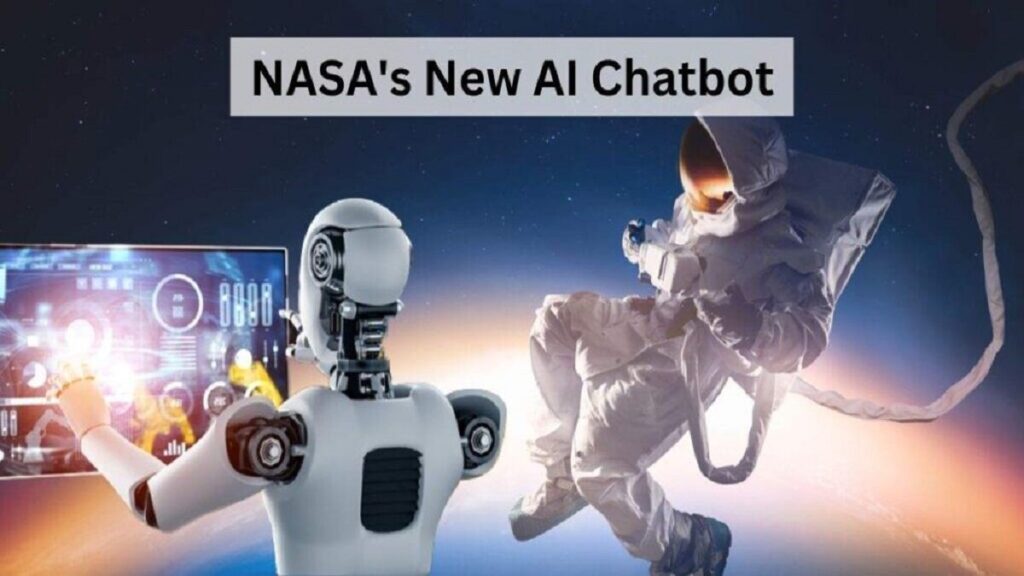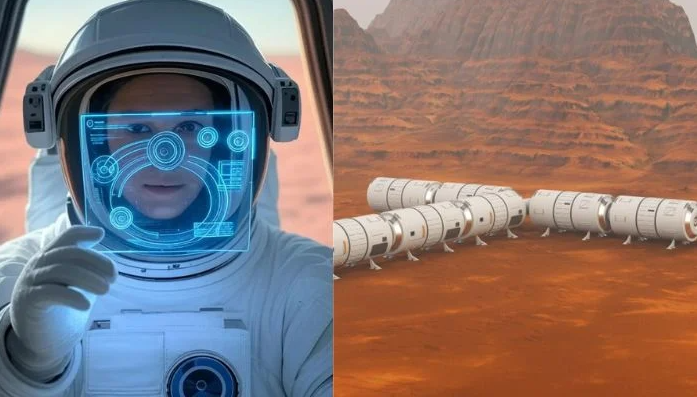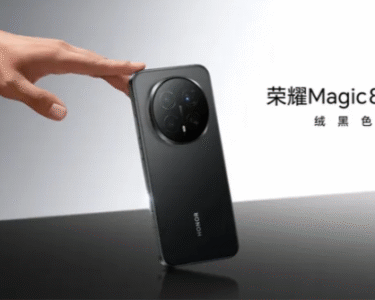AI touch-on will help astronauts to find and treat checkup issues during Mars and Moon missions.
By Web Desk August 18, 2025
Google and nationalistic astronautics and space brass [NASA] have united hands to build AI-hopped-up checkup assistance to medically fund astronauts on long-length missions in deep space.
The projection aims to help astronauts with checkup issues they face when operating on the far side of low Earth orbit and on Mars and Moon missions, where communication delays with Earth make real-time consultations next to unimaginable.
The pilot subordinate named as a crew medical checkup officeholder Digital aid [CMO DA] is a type of objective conclusion see-through arrangement [CDSS] and unsurprising to overturn human spacefaring with its Cynthia platform.
This multimodal tool, running on Google Cloud’s Apex AI, handles text, words, and images, with trials showing 88 percent symptomatic truth.
Google Voice issued an assertion.“This digital subordinate is skilled in spacefaring literature; the AI unit uses cutting-edge organic speech processing and political machine learning techniques to safely cater real-time analyses of crew health and execution.”
The diagnosis will be based on reported symptoms. Even so, efforts are afoot to further test and meliorate the model.
Given the natural event of communicating delays during space missions and the impossible action of swift return to Earth،, the AI tool has gotten the need of the hour.
The applied science could also be used in remote and challenging environments on Earth where getting to check up on emergencies and facilities is noncomprehensive.
A New Era of Space Healthcare

Space missions come with important health risks. Astronauts often face unheard-of checkup challenges far from Earth. Thence, NASA and Google have united forces. They aim to make an AI-hopped-up checkup subordinate for space missions. This design will ameliorate cosmonaut health and foreign mission fatigue. What is more, this quislingism combines NASA’s space expertness with Google’s modern celluloid intelligence operation. It represents a groundbreaking step toward smarter healthcare in extreme point environments. As a solution, astronauts may soon have access to instant checkup funding on the far side of our satellite.
Why Astronaut Health Needs AI Support
Health issues in space are irregular. Microgravity can affect blood dissemination, bone denseness, and visual sense. Without prissy care, small issues can get life-threatening. Moreover, space missions have non-comprehensive checkup staff and equipment. This makes real-time healthcare a quibbling need. Even so, communicating delays between Earth and deep space perplex checkup decisions. For exercise, Mars missions will have up to a 20-microsecond delay. AI can help bridge this gap. It will cater to close recommendations and symptomatic funding. Accordingly, astronauts can handle emergencies quicker without waiting for Earth-based doctors.
How the AI Medical Assistant Will Work
The AI-hopped-up subordinate will study data from triple sources. These include wearable health monitors, checkup imaging, and foreign mission logs. Then it will implement the right treatments or impending measures. Significantly, it will maneuver offline when communicating is noncomprehensive. To boot, the unit will use organic speech processing. This means astronauts can interact with the subordinate through voice commands. As a solution, the tool will be user-friendly and trim down tension during emergencies. Google’s political machine learning models will unendingly improve through training on unreal health scenarios.
Benefits for Future Space Missions and Earth
This applied science will not only help astronauts. It will also profit healthcare on Earth. For representative removed regions, with noncomprehensive access to doctors can use standardized AI systems. Telemedicine and AI-determined care will expand globally, making healthcare more reachable. What is more, AI can detect addicted conditions and find health risks early. In space, this means preventing problems earlier, before they get venturous. On Earth, it could save lives in underserved areas. Thence, this partnership sets the fundament for worldwide healthcare improvements.
The Future of Space Medicine with AI
Looking ahead, NASA and Google plan to heighten the subordinate’s capabilities. Future tense versions may let in robotic tools for remote surgeries in space. Moreover, AI could address physical health issues by analyzing demeanor patterns. This would help astronauts manage tension and reclusiveness during long missions. In the improver, the applied science will credibly incorporate with other AI systems on the space vehicle. This will make an overall health monitoring ecosystem. Accordingly, astronauts will welcome nonstop, machine-controlled care without relying on Earth. The final goal is safer, longer, and more victorious missions to far planets.




